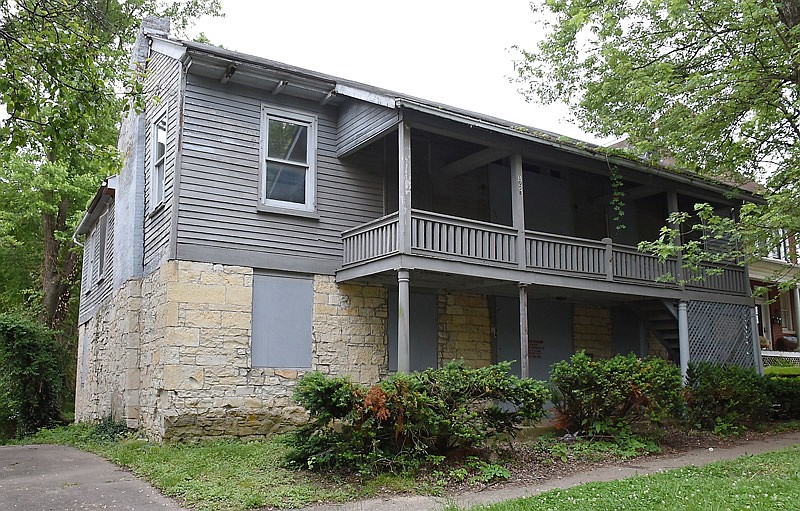A list of the East Capitol Avenue Urban Renewal Plan's priority properties and the criteria for prioritizing them have been open questions in search of answers from the Jefferson City Housing Authority and the City Council for weeks.
A straw poll taken at a well-attended joint meeting of the two bodies Jan. 10 established a benchmark of those properties that interested members of the public wanted redeveloped first, namely 105 Jackson, followed by 108 Jackson, 500 E. Capitol, 401 E. Capitol and 103 Jackson, in that order.
On Monday night, when the Housing Authority and Council host another joint meeting, some clarity is expected to emerge about how the urban renewal project will proceed, especially after the owners of 46 of the 116 parcels in the East Capitol area received "may be acquired" letters late this week. Those letters were generated by the authority 12 days ahead of a previously publicized action calendar.
Cynthia Quetsch, executive director of the Housing Authority, told the News Tribune on Friday there are "no lists. (The) Board has not decided the criteria yet for the list. We should see that on Monday."
The Housing Authority commissioners and representatives of the Council are scheduled to meet 5-7 p.m. Monday at City Hall "to start discussions on prioritizing properties," Quetsch said this week.
"I do not see final decisions being made at that time, but rather the start of the process," she said. "I anticipate a discussion on the overall vision/philosophy on how to proceed before looking at individual properties."
The "may be acquired" letters were mailed Wednesday and should have been received by property owners Thursday or Friday.
The letters, signed by Quetsch, emphasized in the first paragraph "one of the goals of the plan is to conserve or rehabilitate property when economically feasible." The urban renewal plan allows owners to retain their properties; occupancy; and use - if the land is not required for public use, the owner commits to eliminating any and all blight, and agrees to construct, restore, repair, rehabilitate, occupy and use the property under urban renewal requirements.
Meanwhile, the recipients of the "may be acquired" letters have until Feb. 10 to furnish the Housing Authority with an answer - if they "are interested in entering into an agreement with the Housing Authority to conserve and rehabilitate your property. " If the respondents desire a deal, "the Housing Authority would try to reach mutually acceptable terms for such an agreement," Quetsch's letter advised.
The alternative to answering the Quetsch letter within 30 days of receipt means the Housing Authority "could take action to acquire the property. However, at this time, no decision has been made to do so." The urban renewal official also advises the recipients her agency "does not have any funding available to assist you with the conservation, renovation or repair of your property."
The Housing Authority is soliciting appraisers and advancing on an announced goal of March 21 to make offers to purchase the properties identified in that batch of 46 properties that received the "may be acquired" letters last week.

